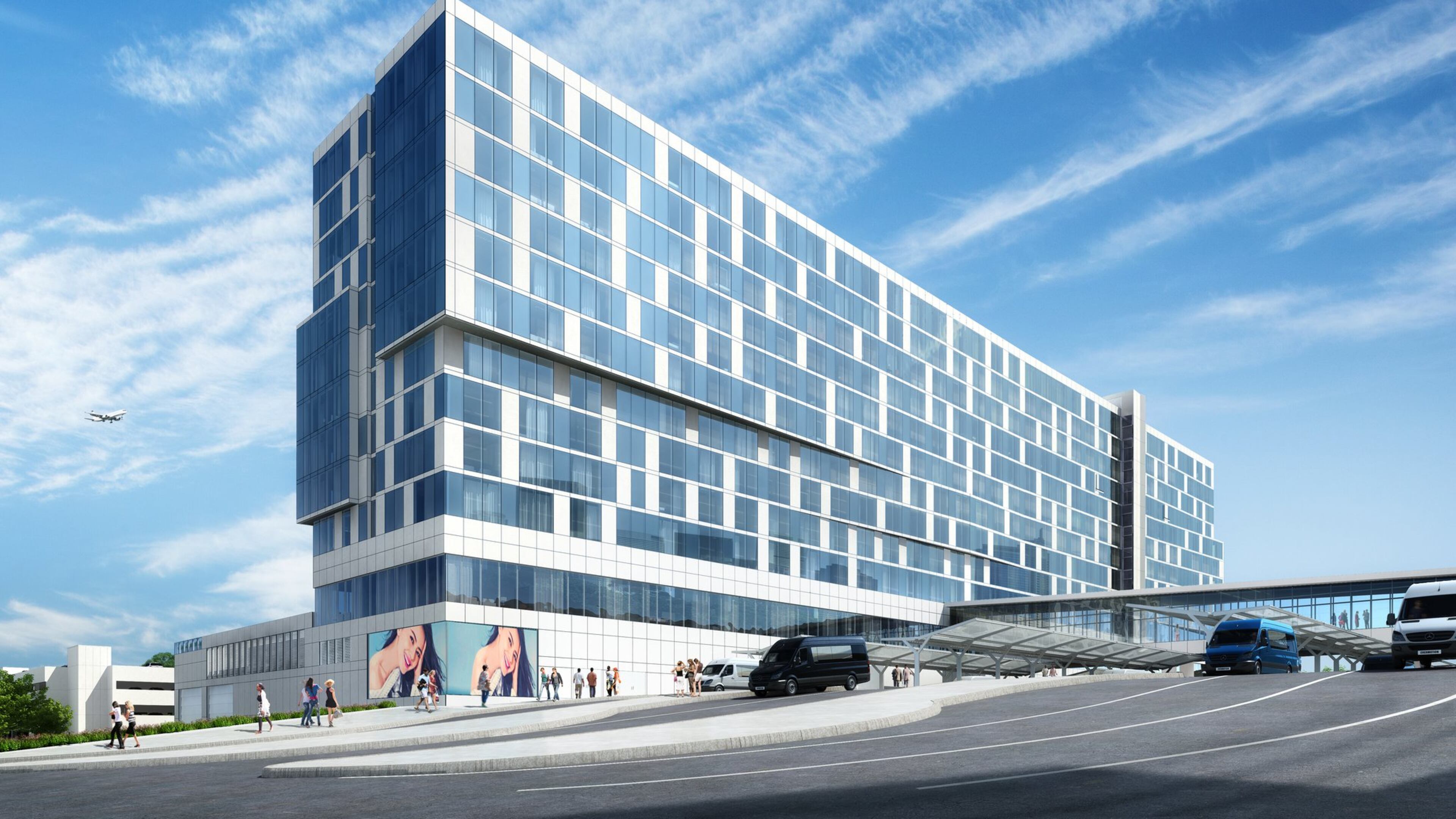Hartsfield-Jackson airport delays some projects, speeds others up

Atlanta's Hartsfield-Jackson International Airport will delay a couple of major projects but speed up others as travel remains depressed due to the coronavirus pandemic.
An already long-delayed project to build a Hilton hotel next to the domestic terminal will be on hold longer, said airport general manager John Selden.
The hotel has been envisioned since 2014, with plans unveiled by then-Mayor Kasim Reed in 2016. It was supposed to begin construction by early 2018, but that didn't happen. Last year, developers said construction could start by the end of 2019. Some pre-construction work began, with fencing erected and preparation for utilities.
The project’s developer, Majestic Realty, said it and its partners “remain 100% committed” to the mixed-use development.
“Currently, we are working with Hilton to evaluate adjustments needed to accommodate some of the concerns in the wake of COVID-19,” Majestic said. “We have invested millions of dollars in this iconic development, and we look forward to getting the project underway.”
Also delayed will be construction of a $70 million "end-around" taxiway intended to improve safety and efficiency of planes moving around the south side of the airfield.
Selden said during a video presentation to the Council for Quality Growth this week that Delta Air Lines — the dominant carrier at Hartsfield-Jackson — has said it will be about 30% smaller.
The Atlanta-based airline has grounded half of its fleet, cut more than 85% of its flights this month and said it will offer buyouts and early retirements to employees.
But Selden said the airport will continue with other expansion and renovation projects, including adding five gates to Concourse T, completing a new Airport West parking deck with technology to pay via Peach Pass, making improvements to the Plane Train line and rebuilding the curbside pickup area for taxis, limos and shuttles.
With passenger traffic down and slowly creeping back up, “This is the best time to build and not impact the operation,” Selden said. The Plane Train work can be done faster because of fewer passengers.
While plans to expand the domestic terminal's South security checkpoint were going to have to be phased to allow some lanes to remain operational throughout, that checkpoint has been closed and construction of the new lanes will be done by the end of the year, he said. Selden has said that while there are fewer passengers, they need to be spaced further apart, so an expansion still makes sense.
He said there are technologies for a mostly touchless travel experience, with mobile boarding pass scanners and facial recognition. “It’s getting close to touchless,” he said.



